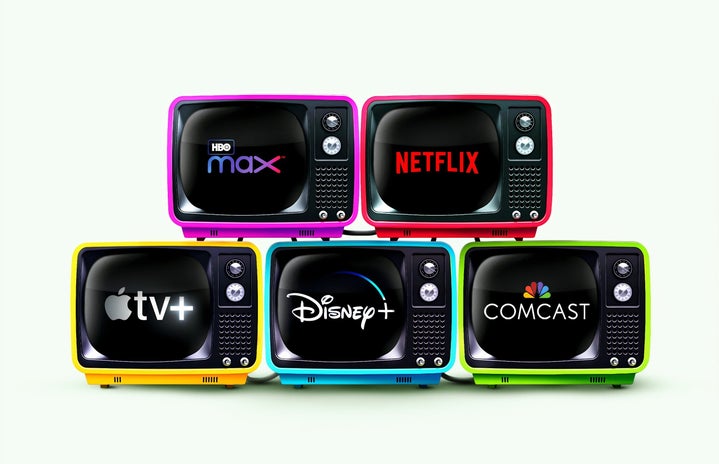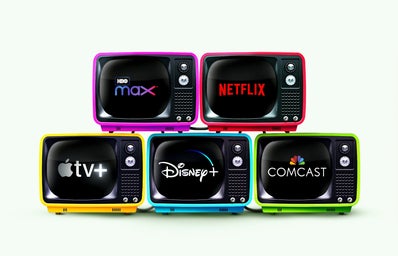Awards season has reared its ugly head once again, and do I have thoughts for you. While the Oscars are notoriously biased and historically white-washed, there is one award show that stands above the rest in terms of awful taste––the Golden Globes.
Year after year, the Golden Globes single-handedly remind us what’s wrong with the film industry and award season specifically. If you need further proof, here’s a list of everything the Golden Globes got wrong this year. Of course, everyone is entitled to their own opinions (I guess), but some of these are pretty damning.
- The All-White Voting Body
-
The Hollywood Foreign Press Association (HFPA) is a group of journalists and critics in the entertainment world who make up the voting body for the Golden Globes. This year, an LA Times investigation found that out of 89 members, HFPA included ZERO Black journalists. For an award show that wants to prop itself up as an indicator of high art and culture, this is not a good look.
- Failure to Nominate “I May Destroy You”
-
Michaela Coel’s achingly personal and deeply heartbreaking limited series I May Destroy You take an intimate look at life after sexual assault. This series is incredibly unique: it showcases a very real depiction of trauma survivors––capturing nuance and vulnerability throughout the healing process. Protagonist Aribella must find peace within herself while recognizing that this trauma will manifest long into her future. Though I May Destroy You will remain incredibly impactful regardless of recognition, it’s sad that Coel’s work wasn’t rewarded. It’s also worth mentioning that Michaela Coel is a Black woman recounting her story as a survivor. This was a narrative arc that is rarely explored in Hollywood, and it’s disappointing (though not at all surprising) that the Golden Globes failed to pay it any recognition.
- Nominations for “Promising Young Woman”
-
While I May Destroy You dealt with the nuances of surviving trauma, Promising Young Woman exploited those same traumas for the sake of a cartoonish portrayal of the violent world women face. I will concede that many people did enjoy this film and thought it made good points about rape culture––I was not one of them. This opinion, of course, is subjective. However, I believe that praising this story (that centers around revenge) over a story like I May Destroy You, that revolves around inner healing, is indicative of a larger problem in Hollywood.
- “Music” Received Multiple Nominations
-
Sia’s film Music about a young, nonverbal autistic girl stirred up controversy this year with its offensive portrayal of autism. Starring Maddie Ziegler (who is not on the spectrum), the film characterized autism in a cartoonish, almost mocking light. If that wasn’t enough, viewers wondered if Sia had also put Ziegler in blackface in the film. It is alarming not only that this film exists, but that it has received critical praise in the form of multiple Golden Globe nominations. It reminds us once again that the Golden Globes only sets out to honor the feelings of a select group of elites, not praise films that truly represent everyone.
- “Minari” Was Excluded from Major Categories
-
In my humble opinion, Minari was easily the best film of the year. Tackling immigration from a microscopic lens, Minari followed the journey of a Korean family planting their roots in a rural community in Arkansas. Though the film’s central message revolved around the American dream, it was placed in the Foreign Language Category. The Globes are careful not to explicitly label Minari itself as a foreign film, but it does call into question the entire category. Minari is about an American family living in a country with no national language. The film asks us to question what it really means to be American and this award category is both regressive and rooted in white supremacy. To add insult to injury, in 2010, when Inglorious Basterds came out, the Golden Globes labeled this film eligible for major awards despite the fact that the majority of the film is in German and Italian. It’s clear that the award categories are more rooted in white supremacy than fact.
- Muting Daniel Kaluuya
-
Ok, so this was probably an accident, but this isn’t the first time the Globes has wronged this talented actor. In 2017, when Get Out changed the way we thought about horror forever, the Golden Globes placed the film in the “Musical and Comedy” section. Sure, writer and director Jordan Peele is a funny guy, but I have yet to discover what the award show thought was so funny about racism. Though Kaluuya won for his supporting role as Fred Hampton in Judas and the Black Messiah, his voice was literally silenced during his acceptance. Yeah, this might be petty, but it is a reminder of all the wrongs Kaluuya and other Black nominees have faced at the hands of award shows.
As we head deeper into the belly of the beast that is awards season, it’s important to keep some perspective. While it’s great when talented actors and creators are rewarded for their hard work, it’s also necessary to realize that the Golden Globes and other shows like it are more about the political world that surrounds Hollywood rather than that year’s most groundbreaking talent. So this year, skip the awards and watch Minari instead.



